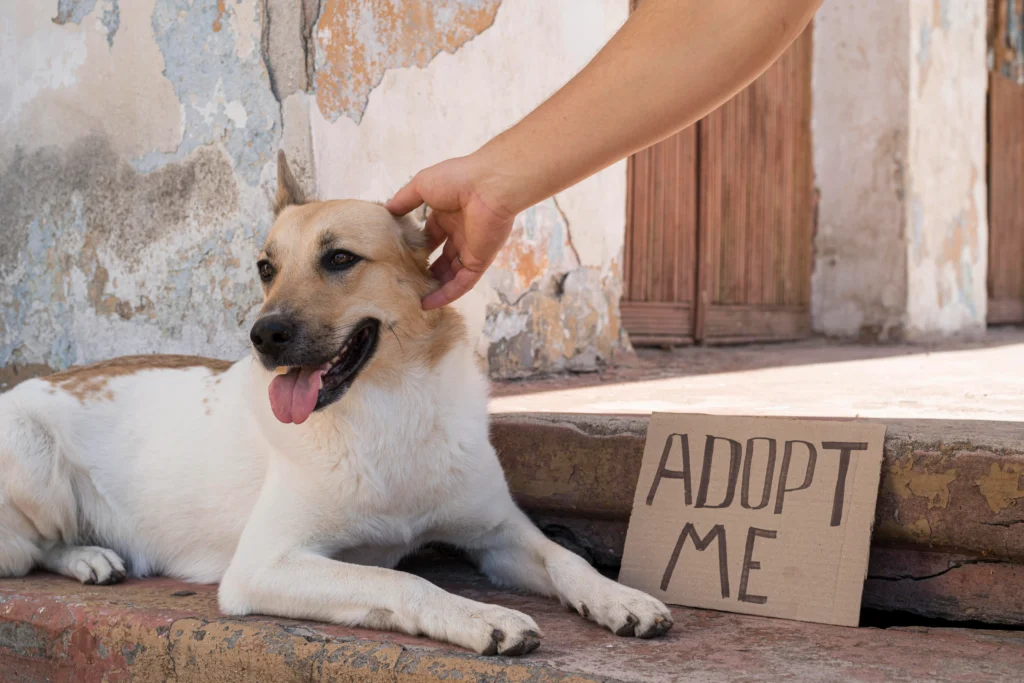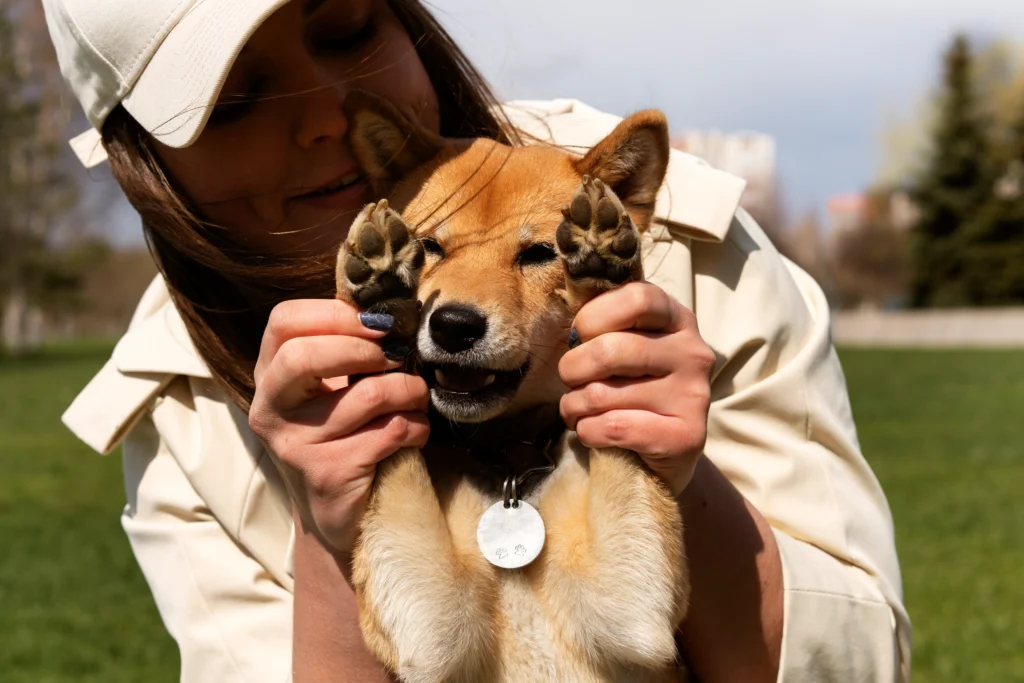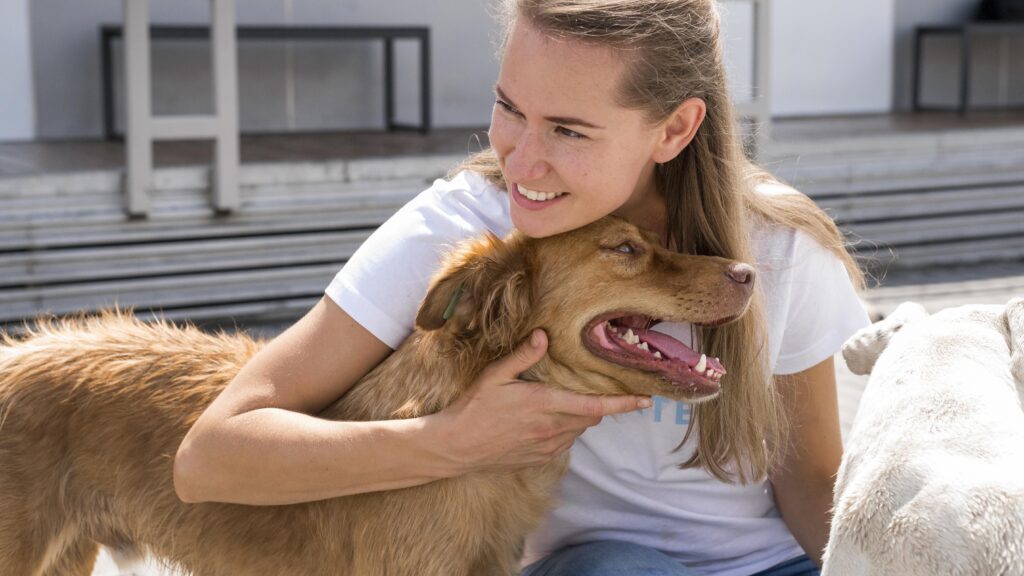Introduction: The Reality of Dog Rehoming in America
When life circumstances change unexpectedly, many pet owners find themselves typing “dog rehoming near me” into their search engines with heavy hearts. Whether it’s due to relocation, financial hardship, or changing family dynamics, the decision to rehome a beloved pet is never easy. In the United States alone, approximately 3.3 million dogs enter animal shelters each year, with many coming from homes where their owners felt they had no other options.
Finding the right resources for dog rehoming near me can be overwhelming, especially during an already emotional time. Unfortunately, many well-intentioned pet owners make critical mistakes during this process that can create additional stress for both themselves and their canine companions. The good news is that with proper guidance and understanding of the dog rehoming process, you can ensure your pet transitions safely to their new home while avoiding common pitfalls.
In this comprehensive guide, we’ll explore the five most costly mistakes people make when searching for “dog rehoming near me” solutions, and provide actionable advice on how to navigate this challenging journey with compassion and responsibility. Whether you’re looking to rehome your own dog or adopt a rehomed pet, understanding these pitfalls can save you time, money, and heartache.
Mistake #1: Rushing Into Rehoming Without Exploring Alternatives
When faced with challenges that make pet ownership difficult, many people immediately search for “dog rehoming near me” without first considering whether rehoming is truly necessary. This rush to rehome can sometimes lead to regrettable decisions.

Common Scenarios Leading to Hasty Rehoming Decisions
- Financial Hardship: Veterinary bills, food costs, and other pet-related expenses can add up quickly. When money gets tight, some owners feel they have no choice but to give up their dogs.
- Housing Issues: Landlord restrictions, moving to a smaller space, or relocating to an area with limited pet-friendly housing options often trigger rehoming searches.
- Behavioral Problems: Excessive barking, destructive chewing, or other challenging behaviors may lead frustrated owners to seek “dog rehoming services near me.”
- Time Constraints: Changes in work schedules, family responsibilities, or health issues can reduce the time available for dog care.
Alternatives to Consider Before Rehoming
Before making the final decision to rehome your dog, consider these alternatives:
- Financial Assistance Programs: Many organizations offer help with veterinary bills, food costs, and other pet-related expenses. The Humane Society maintains a list of these resources by state.
- Training and Behavioral Support: For dogs with behavioral issues, consulting with a professional trainer or animal behaviorist might resolve problems that seem unmanageable. Check out resources on PetsPump’s training section for guidance.
- Temporary Fostering: If you’re facing a short-term crisis, look into “dog foster near me” programs that can provide temporary care until your situation stabilizes.
- Pet-Friendly Housing Resources: Dedicated databases can help you find accommodations that welcome your furry family member.
- Pet Care Assistance: Dog walking services, daycare options, or help from friends and family might bridge the gap during periods when your time is limited.
When Rehoming Truly Is the Best Option
Sometimes, despite exploring all alternatives, rehoming is still the most responsible choice for both you and your dog. Signs that rehoming may be the right decision include:
- Persistent financial inability to meet your dog’s basic needs
- Severe allergies that haven’t responded to medical intervention
- Irreconcilable conflicts with other household pets
- Safety concerns that cannot be addressed through training or management
If you’ve carefully considered all options and determined that rehoming is necessary, taking a methodical approach rather than rushing will lead to better outcomes for everyone involved.
Mistake #2: Using Unsafe or Unreliable Rehoming Methods

Once you’ve decided that rehoming is necessary, it’s tempting to search “free dog rehoming near me” and use the first option that appears. However, not all rehoming methods offer the same level of safety and screening for your beloved pet.
The Dangers of Free Classified Ads and Social Media
Many people post about “dogs looking for new homes near me” on platforms like Craigslist, Facebook groups, or other classified ad sites. While these methods may seem convenient, they come with significant risks:
- Lack of Screening: Without proper vetting procedures, your dog could end up with someone unprepared for pet ownership or, worse, someone with harmful intentions.
- No Follow-up Support: Once the exchange is made, there’s typically no system in place to check on the animal’s welfare.
- Potential for Deception: Some individuals may misrepresent their intentions or living situations when acquiring free pets.
- Animal Fighting Concerns: Particularly for certain breeds, free dogs might be acquired for illegal fighting operations.
Safer Alternatives for Dog Rehoming Near Me
Instead of casual rehoming methods, consider these safer options:
- Reputable Rescue Organizations: Organizations focused on “dog rescue near me” typically have thorough adoption applications, home checks, and follow-up protocols to ensure animals go to appropriate homes.
- Breed-Specific Rescues: If you have a purebred dog, search for rescues that specialize in your dog’s breed. They understand breed-specific needs and have networks of appropriate adopters.
- Professional Rehoming Services: Some organizations offer “dog rehoming services near me” that provide screening, support, and sometimes even continued access to veterinary care during the transition.
- Shelter Surrender Programs: While “dog surrender near me” might seem like a last resort, many modern shelters have robust adoption programs and can find excellent homes for surrendered pets.
Questions to Ask When Evaluating Rehoming Resources
When researching “where to rehome a dog near me,” ask these questions about any organization you’re considering:
- What screening process do they use for potential adopters?
- Do they conduct home visits?
- What happens if the adoption doesn’t work out?
- Do they provide any post-adoption support?
- What is their euthanasia policy (for shelters)?
- Can they provide references from previous adopters or people who have surrendered pets?
By carefully vetting the organizations that will help rehome your dog, you significantly increase the chances of a successful transition to a loving new home.
Mistake #3: Failing to Prepare Your Dog for Rehoming

Many people searching for “dog rehoming near-me” overlook the importance of preparing their pet for the transition. This oversight can make the rehoming process more stressful for the dog and potentially less successful in the long run.
The Importance of Documentation and History
When rehoming a dog, providing comprehensive information about your pet increases their chances of successful placement. Essential documentation includes:
- Medical Records: Complete vaccination history, spay/neuter information, and records of any medical conditions or treatments.
- Behavioral Assessment: Honest information about temperament, training level, and any behavioral challenges.
- Daily Routine: Details about feeding schedules, exercise needs, and sleeping habits.
- Preferences and Quirks: Information about favorite toys, food preferences, and triggers for anxiety or excitement.
Health Preparations Before Rehoming
Before searching for “rehoming dogs near me” options, ensure your dog is in the best possible health:
- Veterinary Check-up: A recent examination can identify and address any health issues before rehoming.
- Vaccinations: Make sure all vaccinations are current.
- Parasite Control: Ensure your dog is free from fleas, ticks, and internal parasites.
- Spay/Neuter: Having your dog altered before rehoming prevents unwanted litters and can make them more adoptable.
Behavioral Preparation
Dogs who are well-prepared behaviorally have an easier transition to new homes:
- Basic Training: Ensure your dog knows fundamental commands like sit, stay, and come.
- Socialization: If possible, expose your dog to different people, animals, and environments to reduce anxiety about changes.
- Crate Training: A crate-trained dog will have an easier time adjusting to a new environment.
Creating a Transition Kit
When you’ve found a potential new home through “dog adoption near me” searches, provide the adopter with:
- A supply of your dog’s current food to allow for gradual transition
- Familiar items like beds, toys, or blankets that smell like their current home
- Written information about routines and care instructions
- Contact information for your veterinarian
- A few weeks’ supply of any medications
Taking these steps to prepare your dog for rehoming significantly increases the chances of a smooth transition and successful placement in a new loving home.
Mistake #4: Overlooking the Importance of Proper Screening and Matching

One of the most critical mistakes people make when searching “adopt a dog near me” or looking to rehome their own pet is failing to ensure proper screening and matching between dogs and potential new owners. This oversight can lead to failed adoptions and dogs bouncing between homes.
Why Proper Matching Matters
Every dog has unique needs, and every household has different capabilities and limitations. When these don’t align, problems arise:
- Active dogs placed in sedentary homes become destructive
- Dogs with specific training needs may overwhelm inexperienced owners
- Pets with medical issues might strain unprepared households financially
- Dogs with certain triggers may not be safe in homes with small children or other pets
Key Factors for Successful Dog-Owner Matching
When using “dog rehoming near me” services or seeking to rehome your own dog, consider these important matching factors:
For Those Rehoming Their Dog:
- Activity Level Compatibility: Be honest about your dog’s energy level and exercise requirements.
- Training Needs: Disclose any ongoing training challenges or requirements.
- Health Considerations: Be transparent about medical conditions that require ongoing care.
- Behavioral Traits: Share information about how your dog responds to children, other animals, strangers, or specific triggers.
- Home Environment Needs: Some dogs require fenced yards, quiet households, or homes without stairs.
For Those Seeking to Adopt:
- Lifestyle Assessment: Consider whether your activity level matches the dog’s needs.
- Experience Level: Be realistic about your ability to handle training or behavioral challenges.
- Long-term Commitment: Evaluate your ability to provide care throughout the dog’s lifetime (potentially 10-15+ years).
- Financial Preparedness: Calculate whether you can afford routine and emergency veterinary care.
- Home Setup: Ensure your living situation is appropriate for the specific dog’s needs.
Red Flags to Watch For
Whether you’re rehoming your dog or adopting from someone searching “puppy rehoming near me,” be alert for these warning signs:
- Reluctance to answer detailed questions about the dog or living situation
- Unwillingness to allow home visits or meet-and-greets with all family members
- Rushing the process without proper introductions
- Inconsistent information about the dog’s history or behavior
- For adopters: inability to provide references or proof of pet-friendly housing
The Value of Trial Periods
Many reputable “dog rescue centers near me” offer trial periods to ensure a good match before finalizing adoption. These trial periods (typically 1-2 weeks) allow both the dog and new family to confirm compatibility before making a permanent commitment.
By taking matching seriously and investing time in proper screening, you dramatically increase the chances of a successful rehoming outcome for dogs looking for new homes near me.
Mistake #5: Ignoring Legal and Ethical Responsibilities in Dog Rehoming

Many people searching “dog rehoming near me” aren’t aware of the legal and ethical responsibilities involved in transferring pet ownership. Overlooking these aspects can lead to complications, disputes, and potentially even legal issues down the road.
Legal Considerations When dog Rehoming near me
Before proceeding with rehoming, understand these legal aspects:
- Ownership Documentation: Ensure you have proof that you legally own the dog you’re rehoming (adoption papers, purchase receipts, or veterinary records in your name).
- Local Regulations: Some municipalities have specific requirements for transferring pet ownership or limitations on the number of animals a household can have.
- Breed-Specific Legislation: Certain breeds face restrictions in some areas. When searching “rehome a dog near me,” be aware of any breed-specific laws in your region.
- Licensing and Registration: Most areas require dogs to be licensed. Understand how to transfer this responsibility to the new owner.
- Microchip Transfer: If your dog is microchipped, you’ll need to update the registration information with the new owner’s details.
Creating a Proper Rehoming Agreement
When working with “dog rehoming services near me” or handling a private rehoming, a written agreement protects all parties involved:
- Transfer of Ownership: Clearly state that ownership is being permanently transferred.
- Health Disclosures: Document any known health conditions or behavioral issues.
- Return Policy: Specify what happens if the adoption doesn’t work out.
- Post-Adoption Contact: Outline any agreed-upon updates or visiting arrangements.
- Financial Considerations: Document any adoption fees or future support provided.
The Ethics of Rehoming Fees
Many people wonder whether charging a fee when using “free dog rehoming near me” resources is appropriate. Consider these points:
- Modest rehoming fees (typically $50-250) can help screen out impulsive adopters or those with harmful intentions.
- Fees can offset costs of veterinary care, spay/neuter procedures, or other preparations for rehoming.
- Some rescues use a sliding scale fee structure based on the adopter’s ability to pay and the dog’s needs.
However, excessively high fees that appear to be profit-motivated can raise ethical concerns.

Responsibility for Disc When rehoming your dog, you have an ethical obligation to:
- Disclose all known health issues
- Be honest about behavioral challenges
- Share the dog’s complete history, including any traumatic experiences
- Explain why you’re rehoming the dog
Full disclosure helps ensure the dog ends up in an appropriate home equipped to handle any special needs.
Conclusion: Finding Responsible Solutions for Dog Rehoming Near Me
Searching for “dog rehoming near me” or “give up dog for adoption near me” marks the beginning of a journey that requires careful consideration and responsible action. By avoiding the five costly mistakes we’ve discussed, you can navigate this process with integrity and increase the chances of a positive outcome for your beloved pet.
dog Rehoming near me
Remember that rehoming should be approached as a last resort after exploring all possible alternatives to keep your dog. When rehoming becomes necessary, using reputable organizations like local animal shelters near me dogs or rescue groups provides the safest path forward for your pet.
For those on the adoption side seeking “rescue dogs near me” or “local dog adoption near me” opportunities, understand that bringing a rehomed dog into your family is a significant commitment that requires preparation, patience, and understanding. These dogs may need extra time to adjust and feel secure in their new environment.
dog Rehoming near me
Whether you’re rehoming a pet or looking to adopt one, the goal remains the same: ensuring that dogs find loving, permanent homes where they can thrive. By approaching dog rehoming with knowledge, compassion, and responsibility, you help create better outcomes for the millions of dogs that change homes each year in the United States.
Additional Resources for Dog Rehoming Near Me
dog Rehoming near me
If you’re facing the challenging decision of rehoming your dog or looking to adopt a rehomed pet, these resources can provide valuable assistance:
- PetsPump’s Guide to Responsible Pet Ownership
- American Humane Society’s Pet Retention Programs
- Best Friends Animal Society’s Pet Rehoming Resources
- PetsPump’s Dog Training Solutions (for addressing behavioral issues before considering rehoming)
- ASPCA’s Database of Pet-friendly Housing
- dog Rehoming near me
Remember that with proper planning, research, and care, the dog rehoming process can lead to positive outcomes for everyone involved—most importantly, the dogs themselves.
dog Rehoming near me
This article about dog rehoming near me is provided for informational purposes only and is not intended as legal or professional advice. For specific guidance related to your pet situation, please consult with local animal welfare professionals or veterinarians familiar with pet adoption centers near me and animal shelter near me dogs services in your area.






